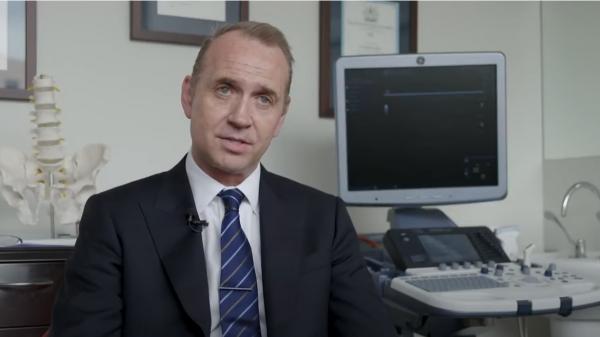Psychological effects of inflammatory arthritis
View transcript
Psychological Effects of Inflammatory Arthritis
Prof. Ian Hickie
Professor of Psychiatry
If we take the specific example of arthritis as to compare with other chronic health conditions: arthritis has pain, it has limitation in physical movement during the day. It has disruption of sleep-wake cycles. It often has medications that need to be taken to control the arthritis. Each of these has a major impact on mental health and well-being. If you reduced your physical activity during the day, you sleep poorly at night. If you have pain during the night and your sleep is fragmented, you’re less energetic during the day. If you’ve actually got pain and restriction and you’re engaging less with the outside world, you have less of a sense of well-being. All of these are then risk factors to poor mental health. So the rates of depression, distress and really importantly a lack of sense of well-being are higher in people who have got arthritis.
Cheryl Dines
Rheumatoid Arthritis
The emotional part of having RA is probably the most difficult for me. I can handle the pain, the pain’s okay. I can handle the fatigue, that’s you know, I can just manage that. The emotional side of it I wasn’t prepared for because so much gets taken away and you can’t attend family things, you can’t attend weddings, you can’t attend what you want to do, you can’t work anymore so, so much gets taken away from you with the disease. And even now I’ve been diagnosed for almost 10 years now, and even now there are times where I still will cry because something’s happened and I want to be able to do something and I just can’t.
Louise Shepherd
Clinical Psychologist
When we think about physical health and mental health, I guess there’s a great sort of overlap or the two are sort of intertwined. So if you think about our mind and body are a lot closer-involved. Even if you think about things like when you have a physical condition, let’s say you might get quite tired and fatigued, and that’s also likely to be experienced in terms of our mental well-being. We might sort of feel flat and so forth just from that sort of physical sort of symptom. So they’re very closely linked and often physical conditions can kind of have symptoms that might actually be similar such as having a headache and so forth. It might then again make you not feel so good.
Max Stoneman
Ankylosing Spondylitis
There was a time since about 2011, that’s when I got really bad, to about 2013 that I did go through some pretty heavy days in terms of depression. Nothing over-the-top, nothing extreme, but just general – I wasn’t happy. For example, my mates would go out, have a couple of beers, have a good time and I wasn’t able to do that.
Dr. Terrance Lim
Consultant Psychiatrist
Chronic illnesses and psychological health really go hand in hand and it wouldn’t be surprising to find that if you did suffer from a chronic condition with involving chronic pain like arthritis, that you would have some psychological distress and that would be completely normal. And I would expect that to be in proportion to the amount of pain and the severity of the illness as well. So there’ll be a lot of people suffering from arthritis who are able to cope relatively well who don’t experience too much of the loss of function or disability and it may be relatively easy for them to be able to cope psychologically with their illness. But conversely there’d be quite a significant proportion of patients with severe arthritis who experience severe or a significant disability who you would expect to have some psychological distress.













